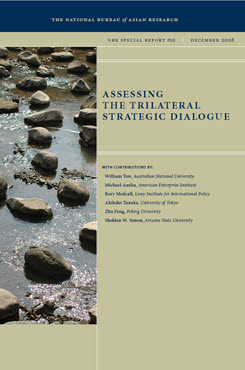TSD—Euphemism for Multiple Alliance?
This essay examines the role that the Trilateral Strategic Dialogue (TSD)—a new institution that excludes and appears directed at China—can have in creating true security cooperation in the Asia-Pacific.
EXECUTIVE SUMMARY
This essay examines the role that the Trilateral Strategic Dialogue (TSD)—a new institution that excludes and appears directed at China—can have in creating true security cooperation in the Asia-Pacific.
MAIN ARGUMENT
For the U.S., the rise of China portends huge risks because Beijing has potential to become a peer competitor; for China, the U.S. is also the largest likely cause of frustration to its own development. By more tightly joining the U.S., Japan, and Australia, the TSD may very well compound rather than alleviate regional instability.
POLICY IMPLICATIONS
In order to achieve a much broader and more stable regional security arrangement that will stand the test of time, U.S. policymakers need to take a more forward-looking and pragmatic approach to the Asia-Pacific. This would require combining alliance politics with the legitimate security concerns of individual countries. The U.S. should join China, Japan, Korea, Australia, and other states in the Asia-Pacific to create a new and larger security architecture for the region.


